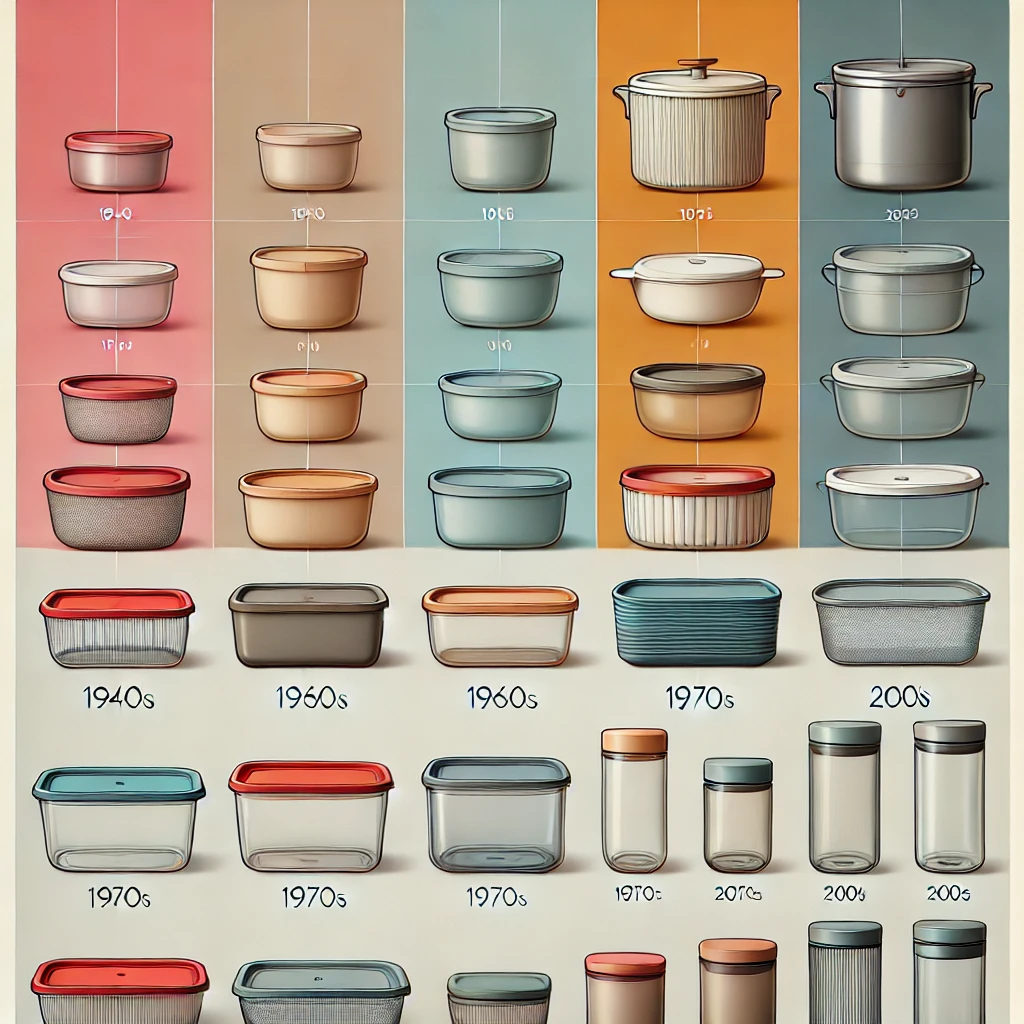Tupperware Files for Bankruptcy. Tupperware, a name once synonymous with household convenience, has seen a dramatic turn in its decades-long story. Tupperware has filed for Chapter 11 bankruptcy, marking a significant moment in the history of this iconic brand. This move comes after years of financial struggle, attributed to shifting consumer preferences and business challenges.
The company, founded by Earl Tupper, started its journey with innovative storage solutions in the mid-20th century. Brownie Wise’s introduction of Tupperware Parties transformed it into a household staple, empowering countless women and changing direct sales models. Despite its success, the brand’s popularity has dwindled, leading to its recent financial distress and eventual filing for bankruptcy in Delaware.
In Orlando, where Tupperware’s headquarters has stood as a beacon of its legacy, the news of bankruptcy reflects broader shifts in business operations. While their colorful containers once defined kitchen organization, today’s market dynamics have posed insurmountable challenges for this storied brand. As Tupperware navigates bankruptcy proceedings, its future remains uncertain, sparking curiosity about the impacts on its employees and loyal customers.
Watch This Video
Click Here To Start

Tupperware Files for Bankruptcy: The Decline of an Iconic Brand
Tupperware, once a leader in home storage solutions, has faced significant challenges leading to its bankruptcy filing. Due to shifts in business models and financial struggles, Tupperware’s iconic brand is now fighting for survival.
Tupperware Files for Bankruptcy: Struggling Business Model
Tupperware’s traditional direct sales model, which heavily relied on independent sales consultants, has struggled to keep up with changing market dynamics. As e-commerce platforms like Amazon gained popularity, this model became less effective. Many consumers now prefer the ease and variety offered by online shopping.
The rise in competition from newer brands offering similar high-quality products at competitive prices further pushed Tupperware out of favor. Adapting to technology-led solutions and strengthening its online presence became crucial, a transition Tupperware was slow to embrace. These challenges combined significantly impacted their sales and market positioning.
Tupperware Files for Bankruptcy: Financial Difficulties
The financial health of Tupperware has been deteriorating for years. Facing liquidity challenges and unable to manage its increasing debt, Tupperware found itself in severe financial trouble. The COVID-19 pandemic further exacerbated these issues, leading to declining sales and operational challenges.
Under these pressures, the company eventually got delisted from the New York Stock Exchange, highlighting its deep-rooted financial distress. With total debts towering over its total assets, the option to file for Chapter 11 bankruptcy became necessary to potentially restructure and protect what remains of the brand.
Tupperware Files for Bankruptcy: Bankruptcy and Restructuring
Tupperware Brands, once a giant in home storage products, has filed for Chapter 11 bankruptcy in Delaware. This move marks a significant step in its efforts to address debt issues and overhaul its business model for a stronger future.
Tupperware Files for Bankruptcy: Chapter 11 Proceedings
Filing under Chapter 11 allows Tupperware to keep operating while restructuring its financial obligations. This provides the company with a chance to renegotiate terms with creditors and explore new strategic options. More than $1.2 billion in total debts have been cited, a major factor in its decision to seek bankruptcy protection.
Tupperware continues to engage with its broad network of over 5,450 employees. It also retains its partnerships with more than 465,000 independent sales consultants worldwide. These individuals are vital for sustaining direct sales efforts through face-to-face interactions and at-home parties. Amidst financial struggles, these workforce components are critical to maintaining market relevance.
Tupperware Files for Bankruptcy: The Path Ahead
Tupperware’s management, led by CEO Laurie Ann Goldman, is looking to modernize its business strategies. A key focus is on leveraging technology to enhance its marketing efforts, emphasizing online channels. This shift aims to attract a broader, digital-savvy audience that can invigorate sales of food storage containers.
Evaluating strategic options is another component of their future plans. Seeking court approval to facilitate possible sales or partnerships is on the agenda. Strengthening financial standing and embracing a digital-first approach are pivotal to adapting in a challenging macroenvironment. By aligning with modern consumer preferences, Tupperware aims to restore its market position and secure financial independence for its retail partners and consultants.
Tupperware Files for Bankruptcy: Affiliate Marketing As An Alternative
To show that affiliate marketing is the best alternative to a struggling business model like Tupperware’s, which is going bankrupt, you can highlight several key points that emphasize the benefits and adaptability of affiliate marketing, especially for seniors:
1. Low Start-up Costs
Affiliate marketing requires significantly lower initial investment compared to traditional direct sales models like Tupperware. With Tupperware, distributors had to purchase inventory and often deal with unsold products, whereas affiliate marketing eliminates that issue. By joining an affiliate program, individuals don’t have to handle any physical inventory.
2. Flexibility and Scalability
Tupperware’s business model is largely based on in-person sales and parties, which limits the audience and scalability. Affiliate marketing, on the other hand, is entirely digital, allowing seniors to reach a global audience through social media, websites, and email marketing. This provides unlimited scalability and the ability to earn income from a much larger customer base.
3. No Product Development or Customer Service
With affiliate marketing, you don’t need to develop your own product or handle customer service. This is a huge plus for seniors who may not want to deal with the complexities of running a full-fledged business. They simply promote products through affiliate links and earn commissions on sales.
4. Passive Income Potential
In contrast to Tupperware, where distributors have to actively host parties and chase sales, affiliate marketing offers the potential for passive income. Seniors can set up a website or social media content once, and as long as the content drives traffic and sales, they can earn commissions while focusing on other aspects of their lives.
5. Targeted Audience & Niche Focus
Affiliate marketing allows individuals to choose specific niches they are passionate about or knowledgeable in, whereas Tupperware forces sellers to promote one product line. With affiliate marketing, seniors can promote a variety of products that align with their interests, such as wellness, financial independence, or home care, all of which could appeal to their peers.
6. Community Support and Learning Resources
Affiliate marketing communities provide online support, forums, webinars, and courses to help seniors succeed. Unlike Tupperware’s party-based model, seniors don’t have to go through extensive in-person training or invest in sales skills. Everything they need to know about affiliate marketing is available online, often for free.
7. Work from Anywhere
Tupperware required sellers to host parties and meet people in person, which could be physically taxing for seniors. With affiliate marketing, seniors can work entirely from home, manage their business at their own pace, and enjoy the flexibility of working from anywhere with an internet connection.
8. Adaptability to Changing Markets
Tupperware’s bankruptcy shows that certain direct sales models can become outdated, while affiliate marketing thrives in the fast-growing e-commerce landscape. Seniors can easily switch to promoting new products or trends in affiliate marketing without having to overhaul their business structure.
9. Higher Earning Potential
In affiliate marketing, the earning potential can be much higher than Tupperware’s commission structure, especially if the affiliate marketer builds a solid audience. Seniors can leverage digital platforms to increase their reach, leading to higher sales and commissions.
10. No Risk of Bankruptcy
Affiliate marketers don’t face the risk of their “company” going bankrupt because they are simply promoting existing products and companies. This is a huge advantage for seniors looking for financial stability and peace of mind.
By comparing Tupperware’s traditional, outdated business model with the modern, flexible, and scalable nature of affiliate marketing, you can show seniors how they can still find financial success and independence without the burdens of inventory, in-person sales, or corporate failures.







